Interview Antonio Cardenal
By Ana Pavon
In a column by Arturo Pérez Reverte, I read that men and women compete for your company… So I feel very flattered to be able to interview you today.This isn’t a gossip magazine, I’m not going to ask you about your personal life… I’d like to get to know you in essence, which is going to be impossible, given the intense life you’ve had, in every sense. To start off, why don’t you reveal an ‘untold confession’ that you can and want to share with us, now that we’re in 2019?
Well, maybe not ‘untold confessions’, but I can tell you things I can admit to! Like when the Bond girls arrived to do an interview for «Octopussy», and I was working for United Artists. We went to pick them up at the airport. A short gentleman, who turned out to be a policeman, came over to me and made them open up all the suitcases… Of course, as well as all the movie costumes in them, they found submachine guns! Hahaha! All props, of course… He wanted them to declare everything! Well, that was quite a scene! These types of things have given me endless anecdotes!
You’ve been defined as a genius, kind, loyal, with a great sense of humour. What I like most is ‘your particular outlook on life’, always with a touch of passion, humour and discretion.
How much truth is there in that? Do you get up every morning full of adrenaline?
Yes, absolutely! And that’s what’s made me successful! Humour has always been essential for me. And when I started working with Estudio Abierto, I was already working with all the big American companies: Fox, United Artists…
You started out as Assistant to the Director of Advertising for Warner Bros. (Jaws, Grease, Jesus Christ Superstar) and Twenty Century Fox (Superman and Star Wars). You’ve worked as Head of Advertising for Universal Pictures, Paramount Channel and for Metro Goldwyn Mayer (Jaws, The Sting, The Champ…). You founded your own film production company, producing 22 films to date…
Could you be defined as the new Alfred Hitchcock, with Spanish DNA, given the professional similarities that exist between you, from your beginnings through to your ascent to the world of cinema?
Not at all! Alfred Hitchcock is a genius, and I’m not! I’ve been a mere worker in the world of cinema. I’ve had a great time, I’ve done incredible, unbelievable things… Like the premiere of Dracula at Pachá in Madrid. For my bosses, it was a totally crazy idea to have the Dracula premiere – a horror movie – in a nightclub… However, afterwards they sent me a congratulatory letter, because Spain was the country in Europe where the film did best, the country with the highest audience levels. That doesn’t happen now!
I had ideas that weren’t normal at the time, new ideas! At the Grease premiere, I was able to count on the collaboration of Miguel Bosé and Ana García Obregón. I held the premiere in a gym, and took all the journalists there to watch the film. I set up stands, where we sold hamburgers and Coca-Cola. Miguel Bosé was at one stand, and Ana at the other. The journalists later gave it great publicity and everyone was talking about the event! That’s why they all signed me up!
What differences do you see between present-day cinema and the cinema you worked in?
So many! The cinema I knew is unequalled! Because I’ve had a great time, in every sense and in all the jobs I’ve done, in all the companies I’ve worked for. For me, work was fun because I felt free, I had decision-making power, and I was very creative.
Now everything involves too much red tape, it’s all marketing, pure and simple… There’s not much creativity! At the present time, everything depends on America and London. Nowadays, if you work for an American company, you’re an ‘intermediary’ with no decision-making power. Back then, I made all the decisions in Spain in terms of marketing. That’s why I wouldn’t go back to working in the world of cinema now.
At the present time, companies like Nextflix, HBO, etc., are proving popular…
Yes, indeed, because series are popular, and actors can earn more money in television than in cinema. Now the good technicians choose to work in television, and that’s a shame. But such has been the evolution of the industry!
I know you’ve launched Hollywood movies, such as Jaws, or Superman. What were the nights out with the Hollywood actors like when they would come to Spain to promote their movie?
Ha ha – I could tell you about many interesting nights… In Spain, all the actors had a great time! Ha ha ha! I remember John Hurt, an actor who starred in the movie Aliens (Steven Spielberg). He said he wanted to get to know Madrid’s nightlife. We went to Pacha and he had a bottle of Magno brandy. I thought he was going to die right there, but I just dragged him back to the hotel. Like I say, they had the time of their lives here!
You’ve accomplished great achievements which seemed impossible in Spanish cinema. In your professional life, apart from receiving several Goyas for your film The Fencing Master, as a producer you contracted the services of Roman Polanski himself to bring The Dumas Club to the big screen, with the name The Ninth Gate and starring Johnny Depp, and you managed to get Viggo Mortensen to star in Alatriste. Two magnificent movies and box-office hits.
Between Polanski and you – two cinema greats – did sparks fly? Was it hard working with him? Who’s more of a perfectionist?
Roman Polanski is a total perfectionist! He’s someone you can learn from every day. For me, it was a pleasure to work with him. All I wanted was to be next to him all day while filming, in order to learn from him. He’s a perfectionist, a genius, and an amazing person! It was a real honour for me to have produced a film directed by Polanski.
Johnny Depp is rather distant, whereas Viggo Mortensen is also great professional, but friendlier.
If you were to make a new film… Which actors would you choose to cast? Why?
Queen of the South, which is about the life of Teresa Mendoza – we were going to make that movie with Angelina Jolie. She herself was interested in starring as Teresa Mendoza, and told us not to look for another actress. However, I tried to arrange the financing and spent seven years looking for capital to produce the film, unfortunately without success… Later, as Angelina was no longer interested, we were going to cast Eva Méndez. The truth is that either of these two actresses would have nailed it! They were two very solid roles. Very powerful. I had two scripts, I’d spent the money on Arturo Pérez Reverte’s author’s rights. So in the end, you spend a lot of money, and if you can’t carry out the project, it’s money lost! Not to mention time!
How much does a script cost?
In Spanish currency, I used to pay an average of 25 million pesetas.
How much would it cost nowadays to make Queen of the South?
Like with anything, a budget would have to be established, but it could easily cost between 25 and 30 million euros – for the type of films I produce, of course!
What is it about Arturo Pérez Reverte that you like so much? What’s he like on a one-to-one basis? I know you’ve had dinner together every Friday for the last 28 years, so I’m sure you must have a anecdote in common that you’d like to share with us.
There’s a funny anecdote that took place when I met Arturo Pérez Reverte back in the nineties, and I bought the author’s rights of the book The Fencing Master from him. At that time, I don’t know why, haha, I liked caviar, and one day we went to dinner at a restaurant called El Landor, in Madrid. When the waiter came over, Arturo said to me: «The usual, Antonio?» and I replied, “Yes, a little bit of caviar, and don’t ask me for any more royalties!” He burst out out laughing and we’ve remained good friends ever since. We’ve known each other for 28 years now, he’s like a brother to me. It isn’t a typical author-producer relationship. It goes deeper than that, although I have made 7 films based on his novels.
Define what success means for you. Are you one of those people who think that after the storm comes the calm, and when you have a problem, you simply wait for it to solve itself with time, or do you face up to it?
For me, success is everyone watching my films. For me, success was breaking box-office records at the premiere of Alatriste. It was the most expensive film in the history of Spanish cinema, but it paid off because it was a box-office hit! It was the most popular Spanish film in 2006, the year it premiered.
Any temptation to go back to work?
No, because now the world of cinema is so highly bureaucratised, there’s no freedom.
What do you consider so far to be «your greatest life achievement»?
Alatriste! It took 7 years of my life to make it. I found an exceptional protagonist in the actor Vigo Mortensen. He accepted the role of Alatriste against the advice of his American agents, because at the time, he was at the peak of his career after the success of The Lord of the Rings.
My only disappointment is not having managed to produce Queen of the South by Arturo Pérez Reverte, back in the day.

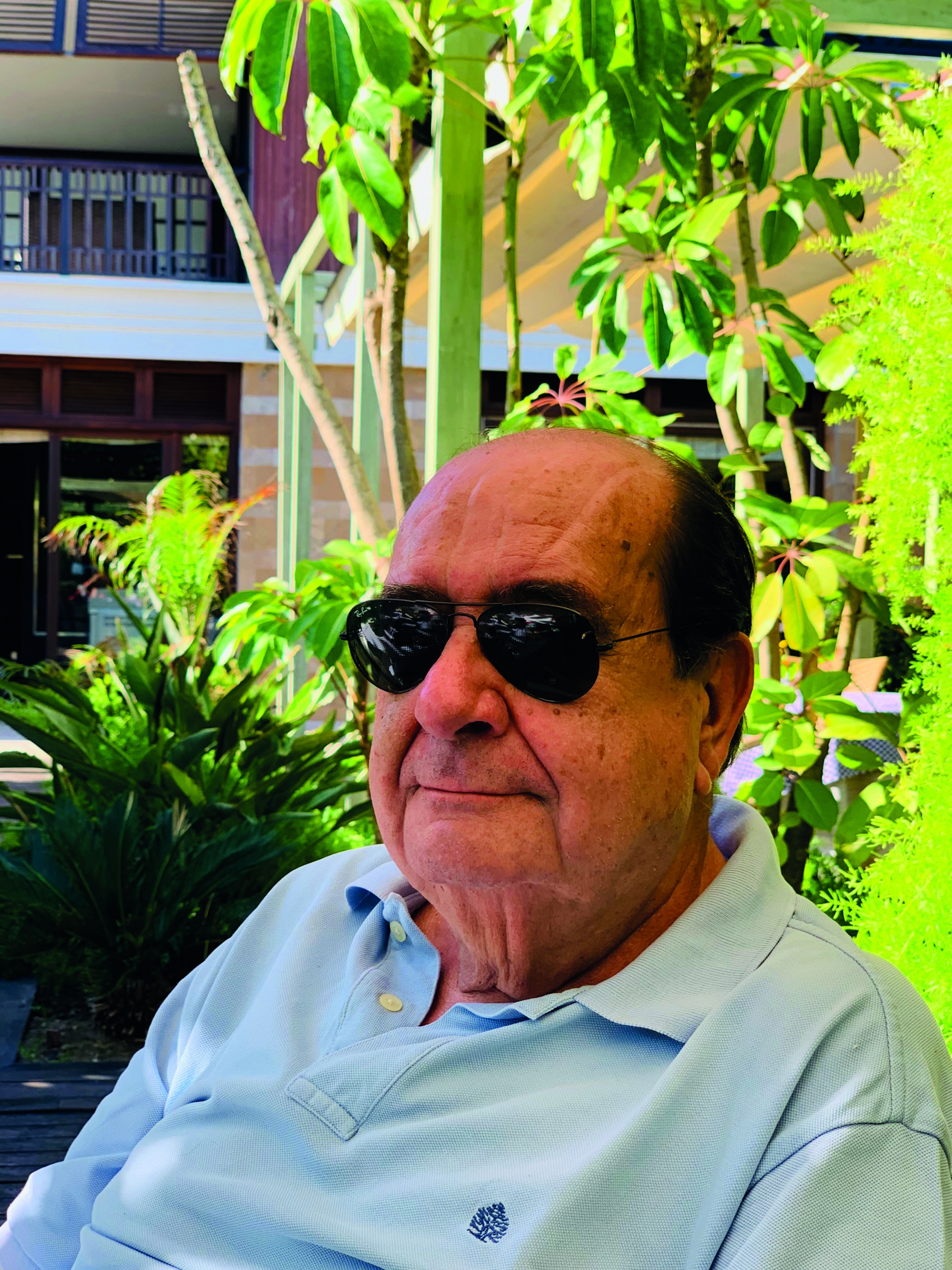

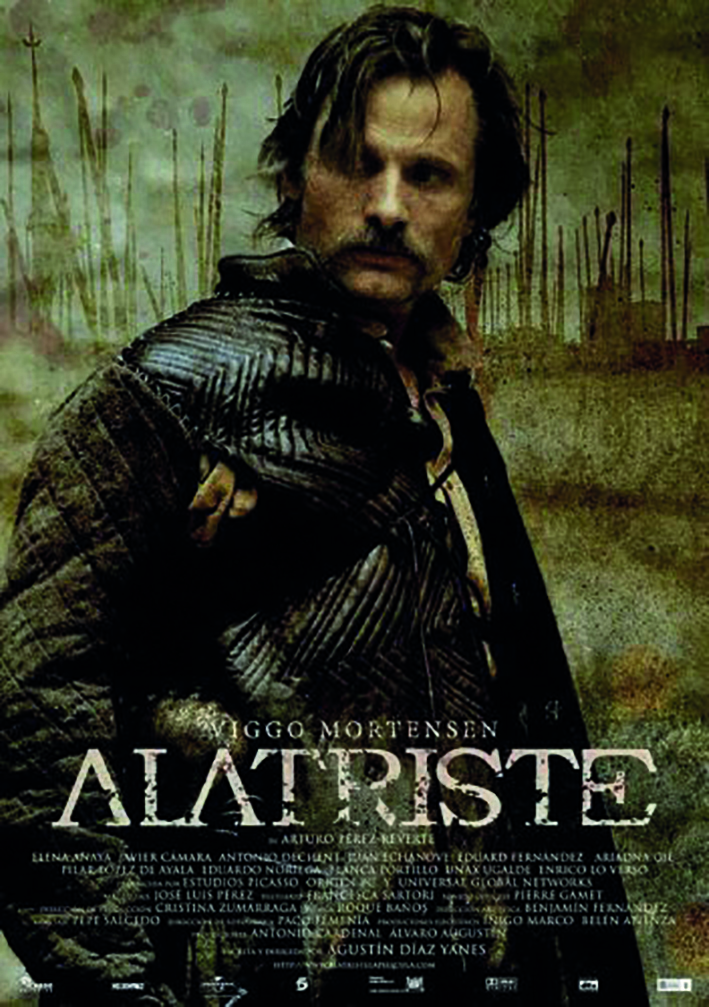
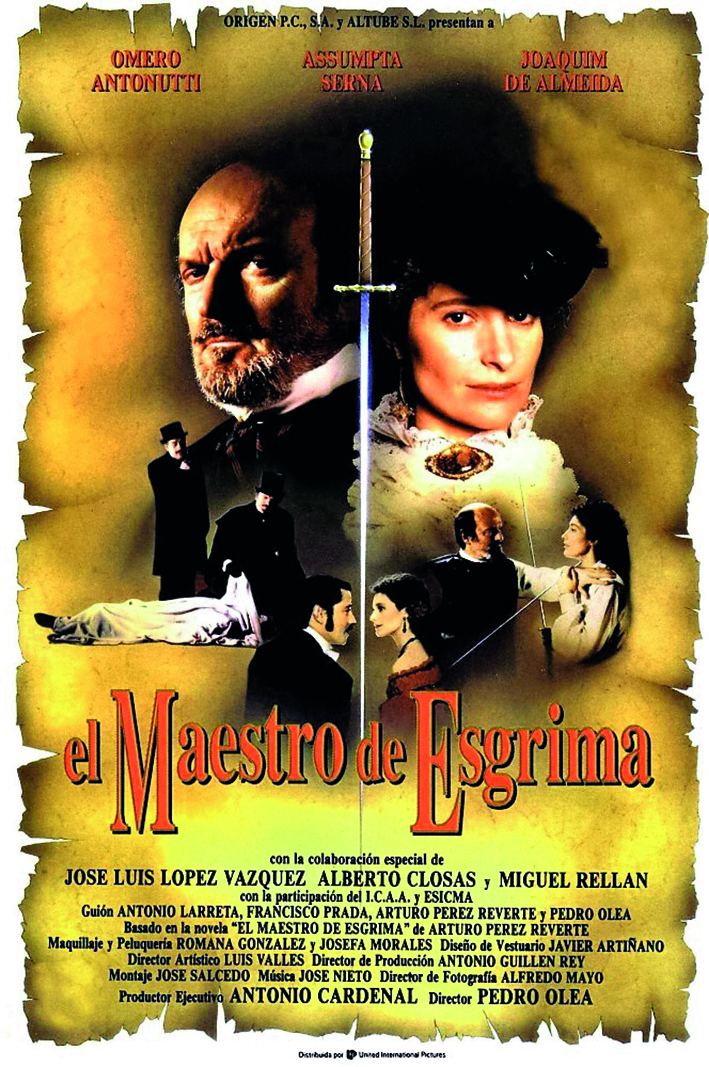


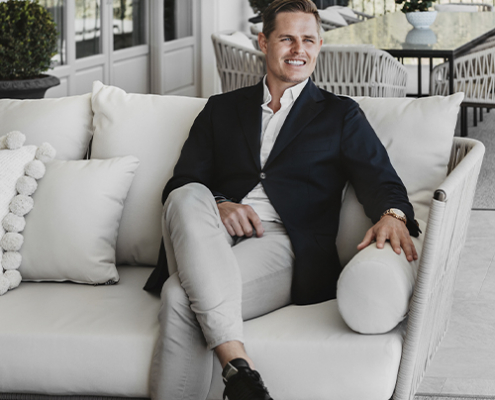
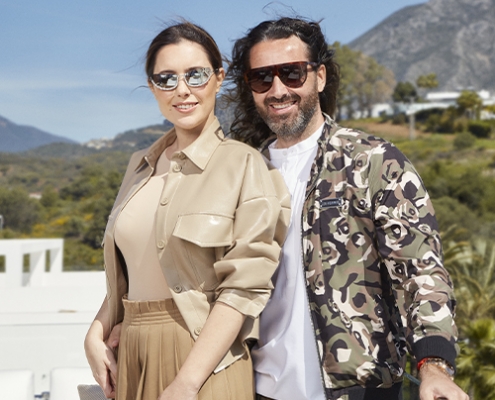
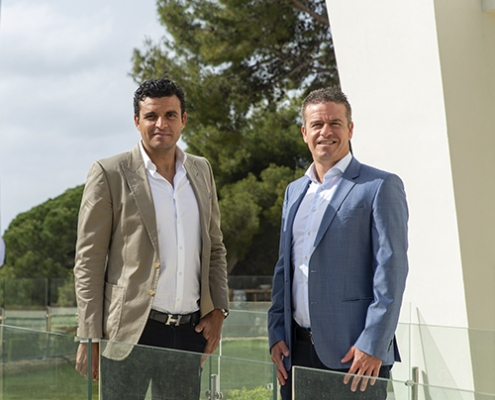
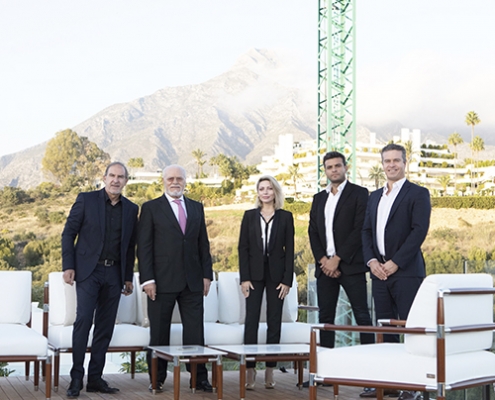
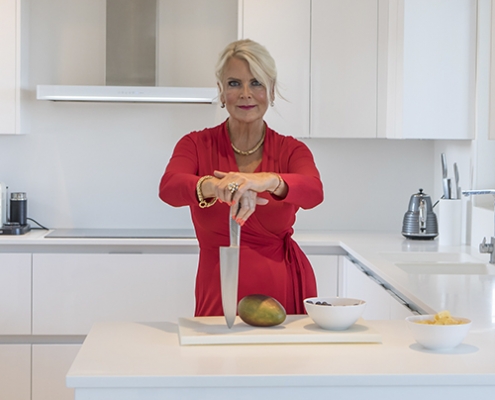
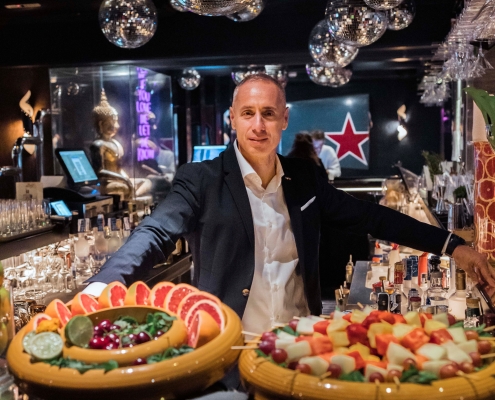


Dejar un comentario
¿Quieres unirte a la conversación?Siéntete libre de contribuir!